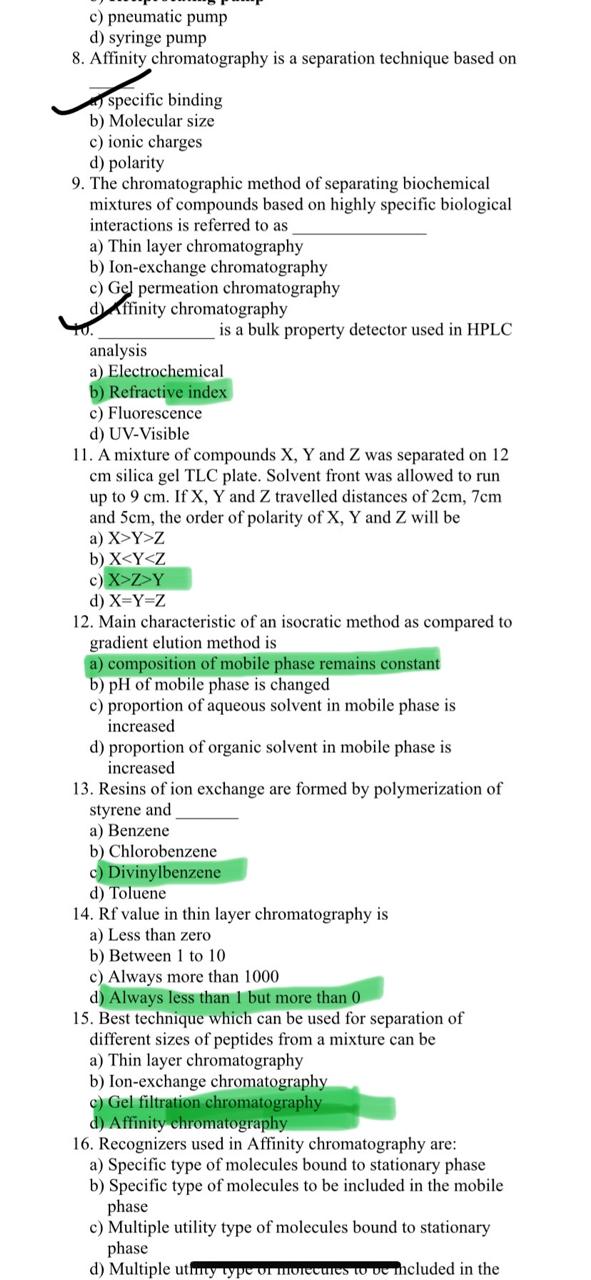Affinity chromatography is a separation technique based on specific binding. The chromatographic method of separating biochemical mixtures of compounds is referred to as __________... Affinity chromatography is a separation technique based on specific binding. The chromatographic method of separating biochemical mixtures of compounds is referred to as _____________. A bulk property detector used in HPLC analysis is ____________. A mixture of compounds X, Y and Z was separated on silica gel TLC plate, and the order of polarity was __________. The main characteristic of an isocratic method is that the ____________. Resins of ion exchange are formed by polymerization of styrene and ____________. The Rf value in thin layer chromatography is __________. The best technique for separating peptides of different sizes is __________. Recognizers used in affinity chromatography are __________.

Understand the Problem
The questions are related to chromatography techniques and chemical properties, specifically focusing on methods and characteristics of various chromatography types, as well as some specific terms and concepts in the field.
Answer
The final answers are: 8. specific binding, 9. Affinity chromatography, 10. Refractive index, 11. X>Z>Y, 12. the composition of mobile phase remains constant, 13. Divinylbenzene, 14. Always less than 1 but more than 0, 15. Gel filtration chromatography, 16. Specific type of molecules bound to the stationary phase
The final answers are: 8. specific binding, 9. Affinity chromatography, 10. Refractive index, 11. X>Z>Y, 12. the composition of mobile phase remains constant, 13. Divinylbenzene, 14. Always less than 1 but more than 0, 15. Gel filtration chromatography, 16. Specific type of molecules bound to the stationary phase
Answer for screen readers
The final answers are: 8. specific binding, 9. Affinity chromatography, 10. Refractive index, 11. X>Z>Y, 12. the composition of mobile phase remains constant, 13. Divinylbenzene, 14. Always less than 1 but more than 0, 15. Gel filtration chromatography, 16. Specific type of molecules bound to the stationary phase
More Information
These answers are based on general principles and common knowledge in chromatography.
Tips
Common mistakes include confusing the order of polarity and misidentifying the type of chromatography or detectors used.
AI-generated content may contain errors. Please verify critical information